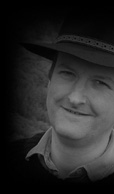WHY USE A DIFFERENT NAME FOR FICTION?
I am frequently being asked why I publish fiction under a different name from my non-fiction. People seem to think that the only reason to use a pseudonym is to conceal your identity, and obviously I am not trying to do that. So why not publish everything as by 'Ian Mortimer'? Here is why.
As a historian I sometimes employ very sharp analytical tools and in some limited cases I claim we can prove aspects of the past. The facts in question are not necessarily things we particularly want to prove; nevertheless we can prove some things - and it is important that we do so because these things provide limitations, or firm boundaries, for what we can say about the past. The good historian will respect as many of these certainties as possible as a matter of integrity. If he/she makes stuff up, or chooses to ignore certainties at will, he ceases to be a historian. He is misleading his readers and breaking the bond of trust that is the cornerstone of all serious historical endeavour.
As a novelist I do make stuff up. I claim things happened although they did not happen. All novelists do. If I don't know when Lord A and Lady B married, I invent a plausible date. If I don't know what they said to each other or what they were wearing on a specific date, I use my imagination. Otherwise there is no story, or the story is stilted, and the fiction collapses. This is no different from fiction set in the modern world: the characters do not necessarily exist and, if they do, they don't necessarily do all the things that the novelist says they do. If they did it would hardly be fiction.
While the foregoing is no different from any other novelist, I also ignore some historical certainties. In Sacred Treason I changed the name of Henry Machyn's wife from Dorothy to Rebecca because one of the early readers of the manuscript said 'I couldn't help thinking of the Yellow Brick Road every time she was mentioned'. I also changed the name of my main protagonist from Harvey to Harley. It's close enough to show I know who the real Clarenceux King of Arms was in 1563; but I deliberately wanted to be inaccurate so people could be sure he is fictional. This is very different from most historical novelists' way of working, many of whom have a strict rule about not contradicting the 'known facts'.
When you consider historical integrity on the one hand, and the lies and deliberate historical errors of the novelist's craft on the other, the reason for two writing identities becomes obvious. As Ian Mortimer I am guided by the past and describe that past and its meaning with integrity, for I have a responsibility to do so. As James Forrester I am free of this responsibility. It's 'playtime': I can allow myself to be guided by my imagination. I can explore truths that are timeless and important to me, and I can have fun inventing dramatic stories. Without using a different name I could not do this as I would be breaking that bond of trust between 'Ian Mortimer' and the readers who expect me to represent the past with integrity.

